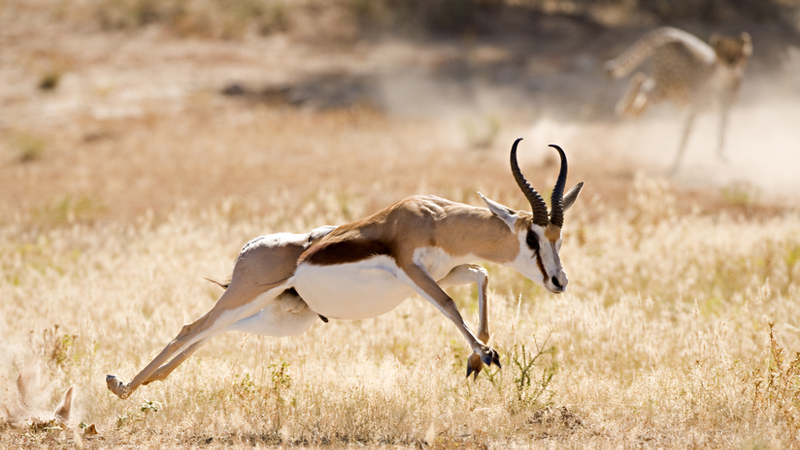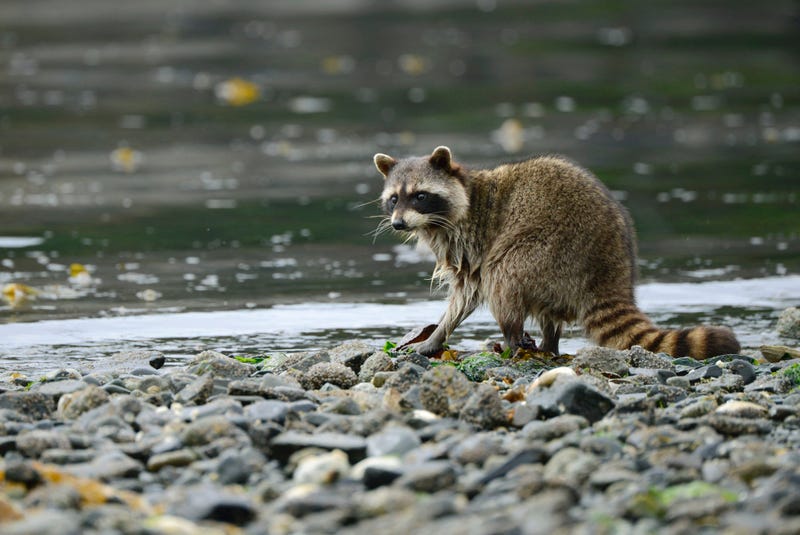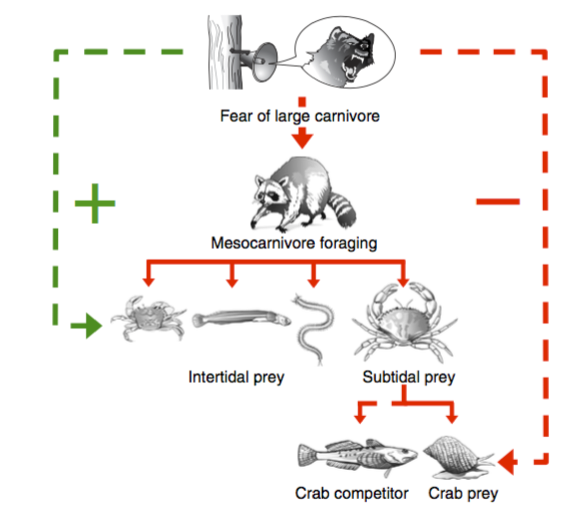
Big carnivores are scary, both to humans and the animals they prey upon. But as a new study demonstrates, the fear that these predators instill among their prey can have a positive influence on ecological health and biodiversity, a finding with important implications for conservation.
By playing the threatening sounds of large carnivores over speakers, researchers from Canada’s Western University and Simon Fraser University have demonstrated how fear in an ecosystem can produce the same effect as predation itself and can also facilitate cascading effects down the food chain. It’s a finding that shows the far-reaching influence of top predators within an ecosystem, and the need to protect this increasingly threatened class of wildlife. The details of this work are published in the latest edition of Nature Communications.
Ecologists have known for some time that fear of predators can affect species at several levels of the food web, including animals with whom predators don’t directly interact. But these effects have only been demonstrated in small animals, such as spiders, grasshoppers, crabs, and snails. There’s been some controversy over whether or not the trickle-down effects of fear are pertinent for large carnivores and their prey in real ecosystems. This has been hard to prove because it’s tough to disentangle the effects of fear from other factors affecting wildlife, such as actual predation itself, and the influence of environmental change. This new study, headed by Western’s Liana Zanette and PhD student Justin Suraci, found a way to overcome these problems.

Going into the experiment, the researchers knew that raccoons on British Columbia’s Gulf Islands were devastating songbirds on land and intertidal crabs and fish in the ocean. This is largely because these raccoons have little to fear: Most of the large carnivores that prey on raccoons—such as cougars and wolves—were wiped out from the islands a century ago. Researchers wanted to see how these raccoons would react to the mere presence of fear, and how any changes to their behavior might be felt down the food chain. Despite the absence of cougars and wolves, these raccoons have learned to be fearful of at least one large carnivore: dogs. Zanette and Suraci took this important bit of insight and used it to their advantage.
The researchers played the threatening sounds of large carnivores (and also non-threatening control sounds) from speakers along an extensive length of shoreline for months at a time. While this was happening, they monitored the effects on raccoon behavior (using continuous video and photo monitoring), and changes in abundance of the raccoon’s prey. They were also careful to isolate the effects of fear from other potential causes of behavioral changes in the raccoons or in prey abundance.

The effects were dramatic. Over one month, the foraging time spent by raccoons in their favorite areas dropped 66 percent. This resulted in a 97 percent increase in the abundance of shore crabs, an 81 percent increase in intertidal fish, and a 61 percent increase in red rock crabs. This is turn produced yet another ripple effect: Populations of other species of invertebrates decreased, because they were outcompeted or eaten by the crabs that had suddenly been released from the predation pressure of raccoons. The presence of fear had, over several weeks, been felt throughout the entire food web.
The researchers say these results have “critically important implications” for conservation, wildlife management, and public policy, and that failing to consider fear dramatically undermines and underestimates the role that large predators play in ecosystems.
http://io9.gizmodo.com/the-world-is-l...
No doubt, conservationists are increasingly pointing to the devastating ecological and environmental impacts of losing large carnivores around the globe. A 2014 report in Science showed that more than 75 percent of the globe’s large carnivore species—including lions, dingoes, and wolves—are in decline. Those losses have been blamed for dramatic increases in herbivores, such as deer and elk, leading to excessive vegetation loss, which then affects birds and small animals and even contributes to soil erosion.
For the researchers, their experiment affirmed something they suspected all along—that these cascading effects can be influenced by the presence of fear. What’s more, the study strongly hints at similar processes elsewhere. Take the controversial reintroduction of wolves to Yellowstone National Park in the 1990s. As Suraci pointed out to Gizmodo, the presence of wolves in the park yielded beneficial cascading effects on the entire ecosystem. The elk were so scared of the wolves that they ate fewer shrubs, allowing the plants to regrow, which in turn allowed species like songbirds and beavers to recolonize.
Looking ahead, Zanette and Suraci want to use their newly developed experimental procedures to investigate the role of large carnivore-induced fear in other ecosystems. “We now have the tools to experimentally manipulate fear in wildlife,” Suraci said. “And these should be used to build a general understanding of how the fear of predators structures ecosystems, information that may be critical to effective ecological restoration.”
The researchers are also hoping to understand how humans are altering food webs by affecting animal behavior. Suraci strongly suspects this is happening. But as to the extent and nature of these effects, he said, “We simply don’t know.”